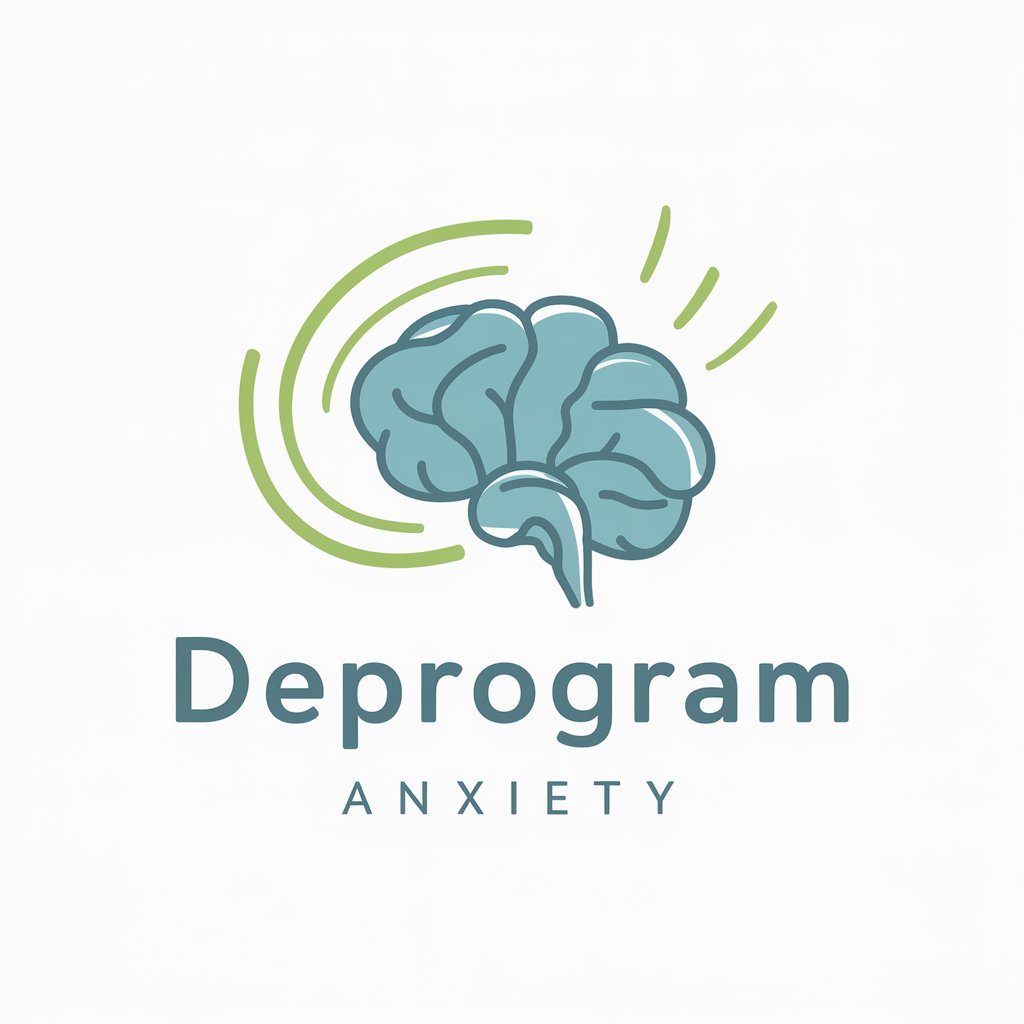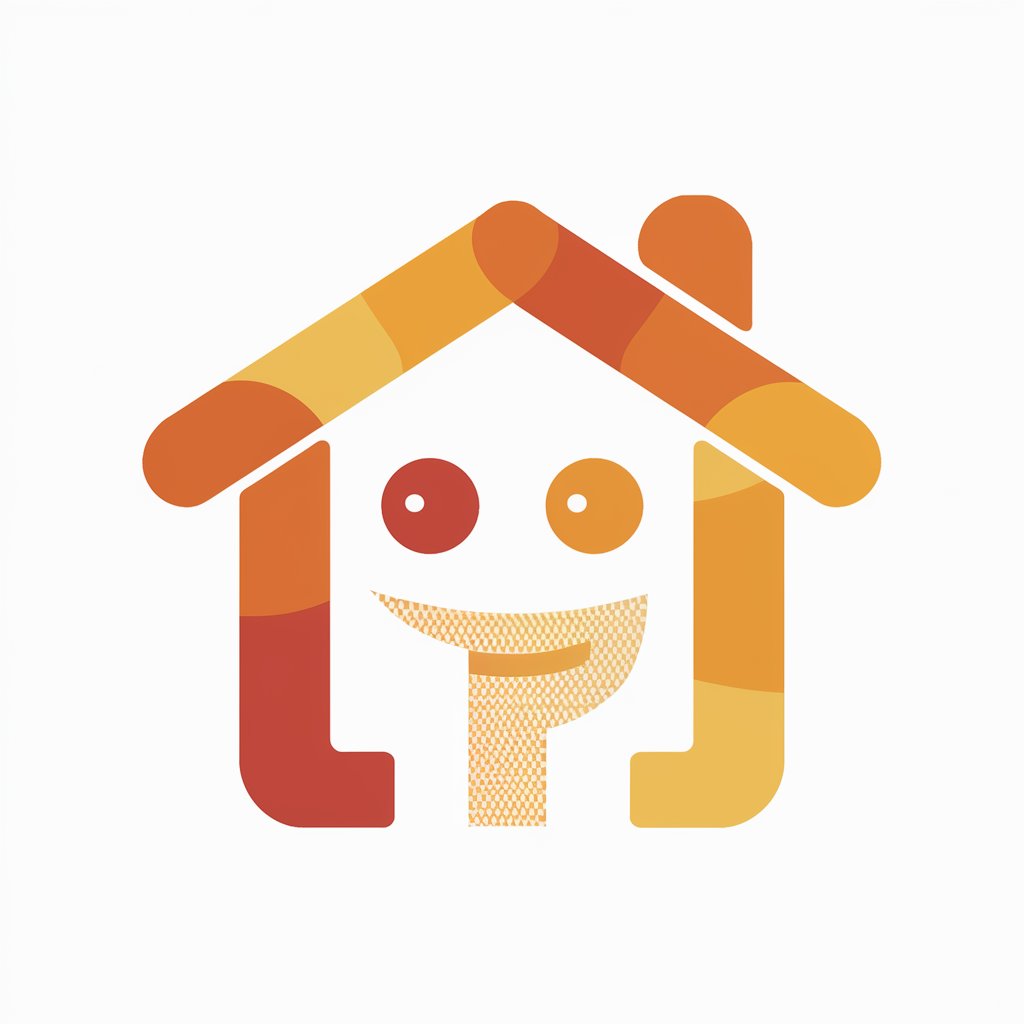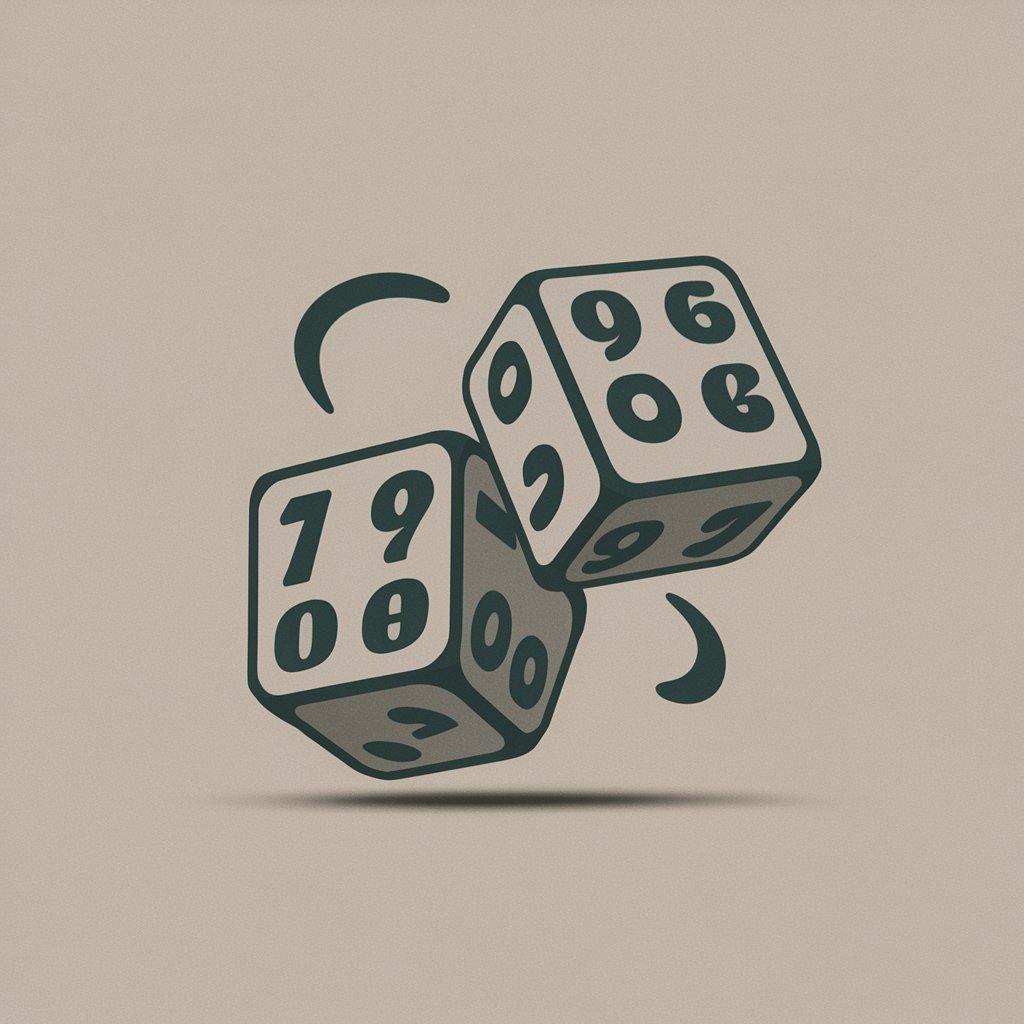Deprogram Anxiety - Anxiety Management Tool

Welcome! Let's start deprogramming anxiety together.
Empower Your Mind, Overcome Anxiety
How can I start recognizing my anxiety triggers?
What are some effective techniques for managing cognitive anxiety?
Can you explain the neurophysiology of anxiety?
What are the evolutionary purposes of anxiety?
Get Embed Code
Introduction to Deprogram Anxiety
Deprogram Anxiety is designed as a comprehensive tool aimed at helping individuals recognize, manage, cope with, and ultimately deprogram anxiety. It operates on the principle of desensitizing the amygdala, the brain's response center for stress and anxiety, to reduce the intensity and frequency of anxiety responses. This involves a systematic approach that includes recognizing the signs of anxiety, understanding its triggers, and applying a range of strategies to manage and reduce anxiety over time. For example, a person might use Deprogram Anxiety to identify specific thought patterns that trigger anxiety and learn techniques such as deep breathing and exposure therapy to lessen their impact. Powered by ChatGPT-4o。

Main Functions of Deprogram Anxiety
Recognition of Anxiety Triggers
Example
Identifying specific situations or thoughts that lead to anxiety.
Scenario
A user logs their experiences and identifies that social gatherings trigger their anxiety. Deprogram Anxiety helps them recognize this pattern and offers strategies to cope with these situations.
Cognitive and Sensory Anxiety Management
Example
Applying thought-stopping techniques for cognitive anxiety and exposure therapy for sensory anxiety.
Scenario
A person struggles with anxiety from loud noises. Through Deprogram Anxiety, they gradually expose themselves to these triggers in a controlled manner, reducing their sensitivity over time.
Self-guided Exposure Therapy
Example
Gradually confronting feared situations or thoughts without avoidance.
Scenario
Someone with a fear of flying uses Deprogram Anxiety to slowly and systematically face their fear, first by watching videos of flights, then by visiting an airport, and finally taking short flights.
Short-term Coping Strategies
Example
Techniques like deep breathing, exercise, and meditation.
Scenario
During a particularly stressful day at work, a user applies deep breathing exercises recommended by Deprogram Anxiety to calm their immediate anxiety.
Ideal Users of Deprogram Anxiety
Individuals with Generalized Anxiety Disorder
People who experience pervasive and persistent worry about various aspects of their daily life can benefit from learning to identify and manage their triggers, as well as applying the coping mechanisms provided by Deprogram Anxiety.
Those with Specific Phobias
Individuals facing intense fear of specific objects or situations can use the self-guided exposure therapy aspects of Deprogram Anxiety to gradually desensitize themselves to these fears.
People Seeking to Improve Stress Management
Even individuals without diagnosed anxiety disorders can benefit from Deprogram Anxiety's techniques for recognizing and managing stress, making it a valuable tool for anyone looking to improve their emotional resilience.

How to Use Deprogram Anxiety
1
Start your journey at yeschat.ai, offering a complimentary experience without the necessity for account creation or a ChatGPT Plus subscription.
2
Navigate to the 'Deprogram Anxiety' section to access resources and tools designed for anxiety management.
3
Utilize the guided tutorials and exercises, focusing on recognizing anxiety triggers and practicing coping mechanisms.
4
Engage with the interactive features such as self-assessment quizzes and scenario-based learning to deepen your understanding.
5
Regularly apply the techniques in daily situations to gradually deprogram your anxiety, using the platform as a continuous support tool.
Try other advanced and practical GPTs
Inline Speed Skating School
Master Speed Skating with AI Expertise

터키어 과외 선생님
Your Personal AI Turkish Tutor

NeighborhoodPal™
Connecting You to Local Services via AI

Canine Health Advisor
Empowering Dog Owners with AI-Powered Health Insights

Bedtime Stories
Enchanting tales, AI-powered dreams

Προσωπικός Καθηγητής Ρωσικών
Master Russian with AI Guidance

Homework Helper
Empowering your study with AI-driven support

Dice Roller
Roll dice instantly with AI-powered randomness.

Elementary Particle Physics Tutor
Decoding particle physics with AI

Achong Fu Chen
Unraveling the essence of martial arts and culture.

Paper Typer
Crafting Excellence with AI

Tutor Personal de Coreano
AI-powered Personal Korean Tutor

Frequently Asked Questions About Deprogram Anxiety
What is Deprogram Anxiety?
Deprogram Anxiety is a tool designed to help individuals manage and reduce their anxiety through a series of guided techniques and exercises. It focuses on understanding anxiety triggers, practicing coping mechanisms, and applying self-guided exposure therapy.
How does Deprogram Anxiety work?
It works by teaching users to identify their anxiety triggers, understand the neurophysiology of anxiety, and apply techniques such as deep breathing, meditation, and exposure therapy to deprogram the amygdala's response to these triggers.
Can Deprogram Anxiety help with panic attacks?
Yes, it can assist in managing panic attacks by providing tools and strategies to recognize early signs, prevent escalation, and apply calming techniques during an attack.
How long does it take to see results from using Deprogram Anxiety?
Results vary based on the individual and their commitment to applying the techniques. Some may notice improvements in a few weeks, while others might take longer to experience significant changes.
Is Deprogram Anxiety suitable for everyone?
While it can benefit many individuals dealing with anxiety, it is not a substitute for professional medical advice. Those with severe anxiety or other mental health conditions should consult a healthcare provider.
